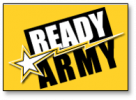Individuals and families should be prepared to survive for a minimum of 72 hours before the restoration of essential services, such as the distribution of water, food, and emergency supplies.
To prepare your family for an emergency, assemble one or more emergency kits that include enough supplies for at least three days. Think of items that have multiple uses and are long lasting.
You kits will enable you and your family to respond to an emergency more quickly. Your various emergency kits will be useful whether you have to shelter in place or evacuate.
Routinely evaluate your kits and their relevance to the threats. Throw away and replace any expired or damaged medications, food or water. Store your emergency kit in an easily accessible area such as a cupboard by the door and make sure everyone in your family knows where it is. If at all possible, consider putting your kit in a dry bag.
Essential:
qWater—at least one gallon per person per day for at least three days
qFood—nonperishable food for at least three days (select items that require no preparation, refrigeration or cooking such as high energy foods and ready-to eat canned meat, vegetables, fruit)
qManual can opener (if the food is canned), preferably on a multi-tool
qReusable plates, cups, utensils, saucepan (note, a metal bowl can double as a cup or plate)
qFirst aid kit
qPrescription medications and medical equipment/care aids
qN95- or N100-rated dust masks
qPersonal sanitation supplies, garbage bags and plastic ties
qHand-crank or battery operated flashlight
qHand-crank radio or battery operated cell phone charger
qAll-hazards NOAA (National Oceanic and Atmospheric Administration) weather radio
qExtra batteries at the size required
qBrightly colored plastic poncho (can be used as shelter, clothing or a marker)
qWeather appropriate clothing to keep your family warm and dry
qImportant documents, including will, medical and financial power of attorney, property documents, medical instructions
qBackpack or Bag to easily carry items in
Additional Considerations:
qCash
qInfant formula and diapers if you have young children
qPets supplies, including food, water, medication, leash, travel case and documents
qDisinfectant
qMatches or flint in a waterproof container
qSleeping bag or other weather-appropriate bedding for each person
qCoats, jackets and rain gear
qLarge piece of plastic
qDuck Tape
qPaper and pencil
qBooks, games, puzzles, toys and other activities for children







